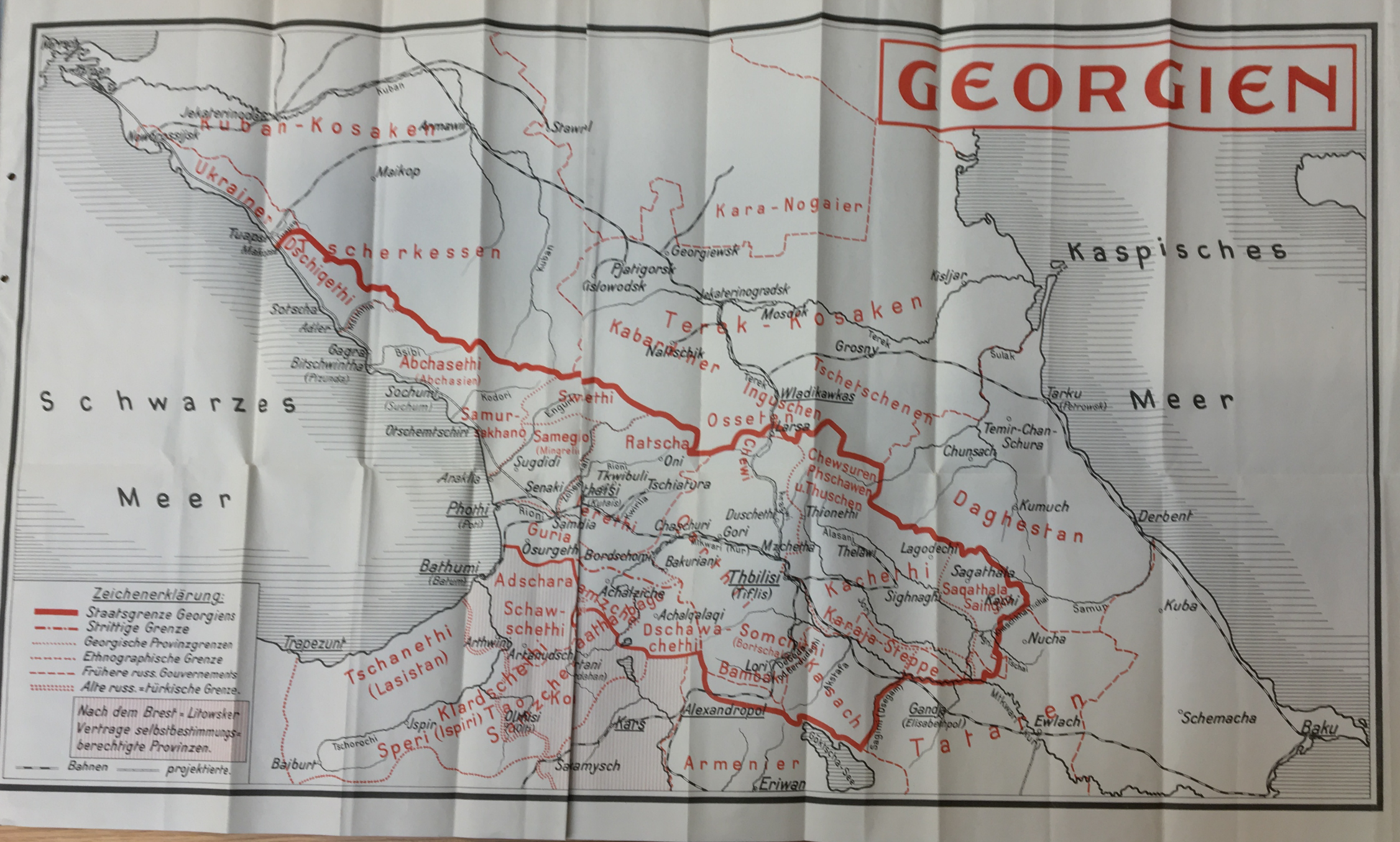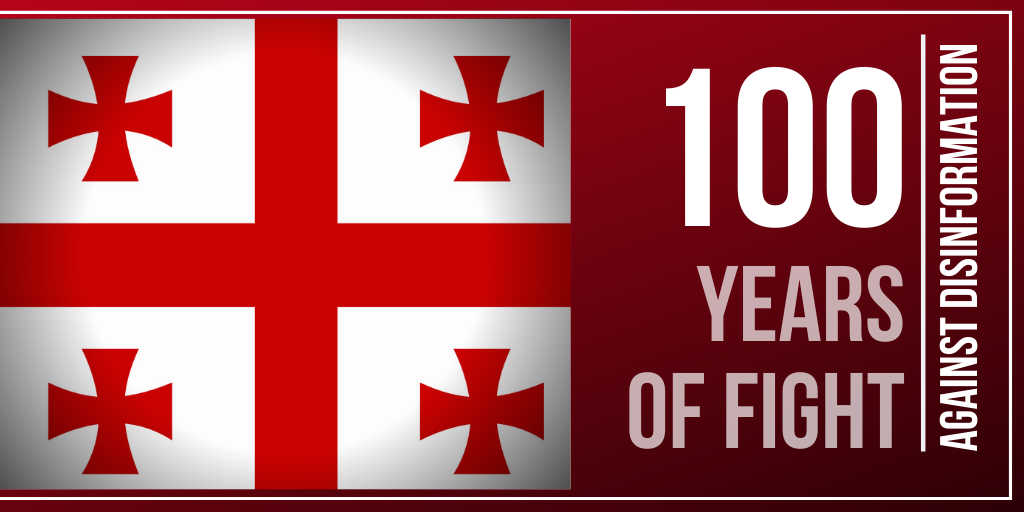The basic methods of Russia's hybrid warfare didn't change since the 1920s. Its 100-year-old anti-Georgian narratives not only closely echo Soviet Russia's propaganda against the 1918 Ukrainian National Republic, but they also chime with the messages produced by modern propagandists of Putin's Russia against post-Soviet Ukraine and Georgia.
Almost 100 years ago, in his speech in Tbilisi 16 January 1920, Noe Zhordania, the first leader of Democratic Georgia, declared the European path of his country:
“Soviet Russia offered us [a] military alliance, which we rejected. We have taken different paths; they are heading for the East and we, for the West.”
Georgia declared independence in 1918. A reformist socialist government, led by Zhordania, was elected, addressing the country’s economic and social issues in a pragmatic way. Austrian Social-Democrat Karl Kautsky
visited Georgia in August 1920. In his report on the visit, it is clear that the achievements impressed him:
The Georgian methods of socialization are, with all their energy, quite free from over-haste and the danger of reaction. Thanks to the fact that they are based on democracy, they have kept clear of that species of State and Barrack Socialism, which imagines that social production can be introduced by rigid centralization of the entire productive forces, and their subjection to the dictatorship of a small committee, excluding all self-government.

Georgia's independence and European path were challenged from the very beginning by the rulers of Soviet Russia. Georgia faced Russian military intervention and aggressive disinformation campaigns. Georgian leader Noe Zhordania was accused in the Moscow Pravda by the Bolsheviks of selling Georgia to England:
Zhordania has never before, in his 25 years of loyal service to the British Imperialism, risen to such lofty heights. Any visiting English generally has been received by him with the hope that “we will work together,” and every time he has had to complain sourly about “Georgia is disappointed with Great Britain”. Disappointed or not – he had to work for them. [—] The term “Lackeys of the Entente” might sound like a phrase for public meetings. However, when reading [the statements of Zhordania] one realizes that this is not a slogan, but a concentrated description of the historic role of the Georgian socialists in 1919.
Georgia has been the target of several hundred of the cases in the East Stratcom Task Force Database of Disinformation. Georgia is one of the Kremlin’s “favorite” targets, surpassed only by the US and Ukraine. A recurrent topic is that Georgia has lost its independence: Georgia is a US protectorate
; Georgia is a feudal principality, governed by the West; Georgia is a slave of Türkiye.

, Greece, Estonia, all NATO countries…
The Georgian Democratic Republic of the early 20th century could not survive the aggression. Speaking in modern terms, a hybrid war was waged against the country. Units “not under Moscow’s control” entered Georgia from Soviet-controlled Armenia in February 1921. In March the same year, Soviet Russia annexed Georgia. Since Georgia regained its independence in 1991, the country has suffered Russian aggression on several occasions. Large parts of the country are still under Kremlin control. However, Noe Zhordania’s 1920 vision of Georgia’s European path is still alive.
Read also:
- Kremlin hybrid war tactics in Georgia, 2008, and Ukraine, 2014-2015: Infographic
- Troop disengagements with Russia work only after capitulation to Russia: lessons from Georgia and Moldova
- Ukrainian history gift to global history - Prof. Snyder
- How Stalin crushed the Euromaidan of 1930
- The Russian war against Georgia is far from over
- How the Russo-Georgian War of 2008 Started

